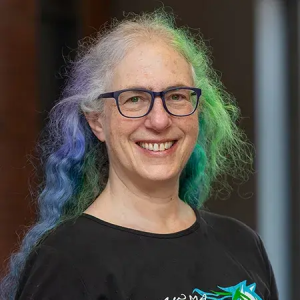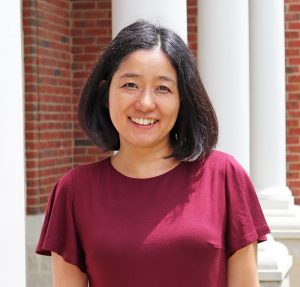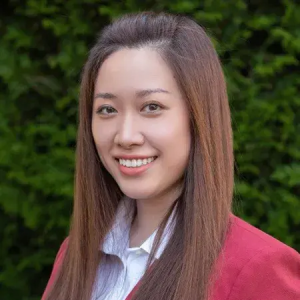Note: This is an application to attend. Space is limited to 80 participants, and travel support is available for hotel accommodations ONLY for those traveling from outside a 50-mile radius of Lexington, KY.
No transportation or other travel expenses will be reimbursed.
Key Dates:
Registration Opens: August 22, 2025Applications Close: September 12, 2025Acceptance Notifications Sent: September 16, 2025- Workshop Dates: October 7-8, 2025
October 7-8, 2025, in person at the University of Kentucky
An Introduction to AI for Research and Education
A two-day Introduction to AI Workshop for both Education and the Classroom, as well as for enhancement of research – Organized by the University of Kentucky Center for Computational Sciences (CCS) with sponsorship and support from the NSF ACCESS Program Support Team (Shelley Knuth, PI, University of Colorado). For more information on the NSF ACCESS program: https://access-ci.org/
Research: Using AI to Enhance Research and Advance Science
Facilitated by the University of Kentucky Center for Applied Artificial Intelligence (CAAI)
For more information on CAAI: https://caai.ai.uky.edu/
Education: Using Generative AI Effectively in Teaching and Learning
Facilitated by the University of Kentucky Center for the Enhancement of Learning and Teaching (CELT)
For more information on CELT: https://celt.uky.edu/
Featured Guests

Associate Vice Chancellor for Research Computing, University of Colorado Boulder
National leader in research computing and cyberinfrastructure strategy

Chief AI & Tech Officer, Vanderbilt University
Shaping institutional AI strategy at Vanderbilt

Associate Vice Chancellor, Director of AI Tennessee, University of Tennessee, Knoxville
Leading cross-disciplinary AI research and workforce development initiatives across Tennessee

Director, Higher Education and Research, NVIDIA
Advancing partnerships between academia and AI technology

VP & CTO, Mark III Systems
Driving AI adoption and digital twin innovation in research

Jon Adams
Technology Strategist for Microsoft Education
Transforming teaching and learning with AI and Copilot innovation
Key Facilitators

Research Primary Facilitator

Education Primary Facilitator

Education Primary Facilitator
Additional Speakers and Presenters
Education:
Ian McClure, UKy VP; Shelley Knuth, U. Colorado, VCRC;
Campbell Bego, PhD; Judy Goldsmith, PhD; Michael Murray, JD
2-3 additional CELT staff TBD
9 faculty from CELT Teaching Innovation Institute TBD
4-5 students from HON 151: Living with Generative AI TBD




University Research Professor,
Spears Gilbert Professor of Law,
UKy J. David Rosenberg College of Law
Research:
Emily Collier, Caroline Leach, CAAI Data Management Specialists, and multiple CAAI Developers: Aaron Mullen, Mitchell Klusty, Mahmut Gokmen, Vaiden Logan, Sam Armstrong, Evan Damron
Allen Karns, Vanderbilt, Chief AI & Tech Officer
Vasileios Maroulas, Assoc. Vice-Chancellor, AI Dir. U. Tenn. Knoxville
Jack Wells, NVIDIA Director Higher Education Research Worldwide
Jim Griffioen, UKy Dir. CCS
Vikram Gazula, Mami Hayashida CCS Staff
Evelyn Smith (Business), Chad Risko (Chemistry), Brent Harrison (CS), Justin Miller (Pathology), and Seth Parker (CS/Heritage Science)









Agenda: Tuesday, October 7
| Time | Session Name |
|---|---|
| 7:30-8:30 | Check-In and Breakfast |
| 8:30 | Welcome & Introductions – Jim Griffioen, UKy Director Center for Computational Sciences – AI: Compute & Data (10 minutes) – Ian McClure, UKy VP Innovation, Assoc. VP Research – UKy AI Strategy & Plans (10 minutes) – Shelley Knuth, U. Colorado Assoc. Vice-Chancellor Research Computing, NSF ACCESS PI – What are ACCESS & NAIRR? (30 minutes) |
| 9:30 | Introduction and Future Trends: where are we now and where are we heading? Cody Bumgardner, Director Center for Applied AI (CAAI) |
| 10:00 | Foundations of AI: Technologies used – data sciences, LLMs, imaging, agentic, multi-modal, robotics… Emily Collier, Data Management Specialist and CAAI Team |
| 10:45 | Break |
| 11:00 | AI in Research Panel: Case studies/lightning talks with examples of how researchers might implement or leverage the technology with real-life considerations… (data science, LLMs, Imaging, agentic, multi-modal, robotics) CAAI developers and faculty |
| 12:00 | Lunch |
| 1:00 | Educational Introduction & Goals Literacy, competency, fluency, readiness: what do we need to know about GAI in education? interactive presentation—Trey Conatser and Jill Abney |
| 1:30 | GAI in our courses and programs: what are the implications for curricular design, pedagogy, and the role of the instructor? interactive presentation—Trey Conatser and Jill Abney with CELT staff |
| 2:15 | Beyond prompting: how do instructors and students use GAI tools effectively? practice session—Trey Conatser and Jill Abney with CELT staff |
| 3:00 | BREAK |
| 3:15 | Student perspectives: what are learners experiencing in their classes, what are they doing with GAI, and what do they think about the future of learning and work? discussion panel—Jill Abney with students from Honors 151: Living with Generative AI |
| 4:15 | Copilot in the Classroom: Teaching with a Thinking Partner What happens when every educator has an AI-powered co-teacher? This session explores how Microsoft Copilot can act as a dynamic thinking partner in higher education; supporting lesson design, student engagement, and academic workflows. Jon Adams, Technology Strategist for Microsoft Education, will share real-world scenarios and strategic guidance for integrating Microsoft Copilot into teaching and learning, helping educators unlock new levels of creativity and efficiency. |
| 5:00 | Conclude |
| 5:30 – 7:00 | Technical Demonstrations and Networking (Mark III Systems/NVIDIA/VAST Sponsored) |
Agenda: Wednesday, October 8
| Time | Session Name |
|---|---|
| 7:30-8:30 | Check-In and Breakfast |
| 8:30 | Responsible and ethical: what values do we model when engaging GAI? Interactive presentation—Trey Conatser and Jill Abney |
| 9:15 | Ethics in context: how do we teach for an uncertain future? fireside chat—Judy Goldsmith and Michael Murray with Trey Conatser |
| 10:00 | Break |
| 10:15 | Pedagogical, curricular, disciplinary: aligning GAI with instructional goals presentation—Trey Conatser and Jill Abney |
| 10:30 | Use cases: what does GAI “look like” across the disciplines and curricula? carousel—CELT Teaching Innovation Institute faculty and Campbell Bego |
| 11:30 | Debrief: what common threads, outliers, and other insights did we notice? discussion—Trey Conatser and Jill Abney |
| 12:00 | Lunch |
| 1:00 | Executive Panel on AI: Strategy, Plans, Challenges and Opportunities Cody Bumgardner, UKy, Dir CAAI Allen Karns, Vanderbilt, Chief AI & Tech Officer Vasileios Maroulas, Assoc. Vice-Chancellor, AI Dir. U. Tenn. Knoxville Jack Wells, NVIDIA Director Higher Education and Research Worldwide Jim Griffioen, UKy Dir. CCS |
| 2:00 | Demystifying LLMs: Your Data, Your AI, Your Laptop Vikram Gazula, CCS User/Facilitation Manager |
| 2:30 | Accelerating your Research with AI and Digital Twins – A Primer on the NVIDIA ecosystem A quick and practical introduction on the NVIDIA ecosystem, with a focus on practical frameworks and toolsets to enable and accelerate research that utilize AI or Digital Twins. This session will touch on topics like training GenAI models, building and inferencing with AI agents with NVIDIA NIMs and Blueprints, building and using 3D models and digital twins in NVIDIA Omniverse, and more. Mark III is NVIDIA’s 2025 Higher Education/Research and 2025 NVIDIA Software Partner of the Year, and we’ll offer up our perspective on other key megatrends that we see out there across higher education and industry and some possible key themes to focus on over the next 1-2 years. Andy Lin, Mark III Systems, VP/CTO |
| 3:00 | Break |
| 3:15 | Introduction to Retrieval-Augmented Generation (RAG) Mami Hayashida, Research Computing System Professional w/ Vikram Gazula, CCS User/Facilitation Manager |
| 3:45 | Resources for AI: Where and how do I find them? – ACCESS – ARA tool and how to get an allocation – FABRIC – Adaptive Programmable Research Infrastructure for Computer Science and Science Applications: A talk on the FABRIC project and how it relates to cyberinfrastructure solutions for AI applications Jim Griffioen/CCS Staff/ |
| 4:15 | Multi-disciplinary Research Breakout Session – Applications in AI: Workshop attendees will break into smaller groups and discuss their interest/applications with experienced researchers in their field – Business: Evelyn Smith – Science: Chad Risko – Bioinformatics/Medical: Justin Miller – Computer Science: Brent Harrison – Law: Michael Murray – Humanities/Heritage Sciences: Seth Parker |
| 5:00 | Conclude |
| 5:30 – 7:30 | Technical Demonstrations and Networking (Dell/NVIDIA Sponsored w/ Bourbon Tasting) |
Research Primary Facilitator

Cody Bumgardner, PhD, is the Director of the Center for Applied Artificial Intelligence and the Assistant Dean for Artificial Intelligence and Data science. Dr. Bumgardner’s primary interest is in the advancement of distributed systems, high-performance computing, and artificial intelligence (AI) in healthcare. Prior to his current appointment, he held several technology leadership positions including Director of Enterprise Systems and Development, Chief Technology Architect, and Director of Research computing. In addition, Dr. Bumgardner directs the Kentucky Regional Optical Network (KyRON), coordinating access to research cyberinfrastructure across Kentucky. Within his twenty-year career in technology architecture and operations, he has led numerous research efforts including international research federations in privacy-preserving data collection, contract support of national research infrastructure, and the development of clinical and research data management systems across laboratory, imaging, and genomic domains. He enjoys working on innovative projects at the intersection of AI, medicine, and distributed computing, and offers a unique miss of operational experience, a deep theoretical and practical understanding of computer science, and real-world experience translating research into clinically validated services.
The Center for Applied Artificial Intelligence (CAAI) at the University of Kentucky accelerates the development and responsible use of AI to advance research, health, education, and economic growth across the Commonwealth. Leveraging cross-sector partnerships and the university’s research strengths, CAAI fosters collaborative innovation to apply AI tools to real-world challenges. Its team of software developers, data scientists, project managers, interns, and advisors help collaborators navigate common AI barriers, rapidly transforming ideas into working prototypes without requiring technical expertise or costly infrastructure. CAAI brings together high school, undergraduate, and graduate students alongside early-career and seasoned professionals, cultivating a dynamic environment where new thinking and established expertise intersect. This diversity fuels innovation, enhances problem-solving, and promotes a strong culture of mentorship and professional growth. Since its founding in 2023, CAAI has completed 65 projects, built a network of 43 partners and more than 120 collaborators, and remains over 50% funded. The Center supports interdisciplinary research, offers technical and strategic guidance, and advances workforce development to position Kentucky at the forefront of applied AI.
Research Workshop Goals
1 – Identify and introduce basic AI techniques and tools for research support
2 – Present real-world research examples using AI across multiple disciplines
3 – Engage workshop participants in exploration of their potential use of AI in research
4 – Expose workshop participants to the challenges and opportunities that AI brings to research
Education Primary Facilitators:


Trey Conatser, PhD, is assistant provost for teaching and learning and director of the Center for the Enhancement of Learning and Teaching (CELT) at the University of Kentucky. In this role he represents UK’s educational mission within and beyond the University, and he leads CELT operations in pursuit of innovative, effective, and engaging teaching and learning. Trey co-chairs UK ADVANCE, which maintains recommendations for responsible use of GAI and provides ongoing guidance to the UK community. He has given talks and workshops on GAI in education, research, work, and leadership across the institution as well as regional and national venues, and he has contributed to coverage of AI in education for Inside Higher Ed, the Chronicle of Higher Education, EdTech Magazine, The Atlantic, Forbes, and KET. Trey has a PhD in English from The Ohio State University with a specialization in writing studies and digital humanities. He teaches in the Department of Writing, Rhetoric, and Digital Studies as well as the Lewis Honors College and the Graduate School.
Jill Abney, PhD, is the associate director of the Center for the Enhancement of Learning and Teaching (CELT) at the University of Kentucky, where she directs the Teaching Innovation Institute and serves as associate director of the UK-JHF Holocaust Education Initiative. Under Jill’s leadership, the Teaching Innovation Institute leads faculty through a year-long, collaborative program on GAI in college teaching and learning. Jill has presented at the Teaching and Learning with AI conference, the Greater Cincinnati Collegiate Connection, the Brain and Brain PET Symposium, and the Kentucky Assistive Technology Services Network, She has a PhD in history from the University of Kentucky and teaches in the Department of History, the Lewis Honors College, and the Graduate School.
Educational Workshop Goals
1- Identify necessary aspects of GAI literacies for teachers and students
2- Develop practical skills for using GAI tools in educational settings
3 – Promote responsible and ethical use of GAI in educational activities
4 – Design for GAI use in alignment with disciplinary and professional contexts
